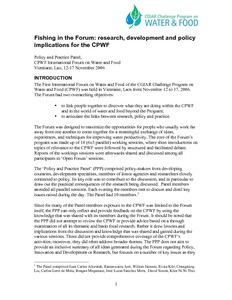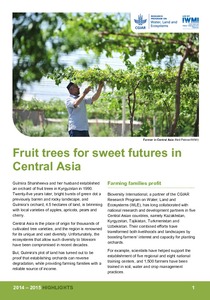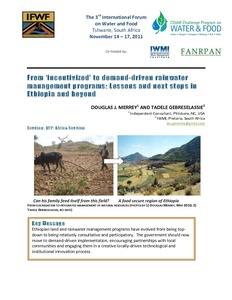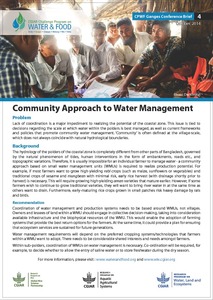Fishing in the Forum: Research, Development and Policy Implications for the CPWF
The First International Forum on Water and Food of the CGIAR Challenge Program on Water and Food (CPWF) was held in Vientiane, Laos from November 12 to 17, 2006. The Forum had two overarching objectives:
• to link people together to discover what they are doing within the CPWF and in the world of water and food beyond the Program;
• to articulate the links between research, policy and practice.
Forest codes of practice: contributing to environmentally sound forest operations
Forest ecosystem services: can they pay our way out of deforestation?
This paper first provides a brief overview of what are and what represent forest ecosystem services. Then it considers the issues of price and valuation, and shows that valuation itself is not a solution but merely a tool. Considering then the reasons of the overall degradation of forest ecosystem services it shows that the main reasons tend to be fundamental: deforestation most often happens because it pays for local people - not so much because the institutionally created arrangements are perverse.
Future scenarios as an instrument for forest management: manual for training facilitators of future scenarios
The purpose of this manual is to help trainers in future scenario better facilitate training workshops for field officers such as forestry managers, extension officers and researchers who are keen to facilitate future scenarios in their forest management projects. Future scenarios are a diverse and flexible set of methods that can be used to help forest user groups and decision makers define clear unified objectives, identify opportunities or obstacles in the path to their management goals, or prepare strategies and action plans for alternate future situations.
Formation and recovery of secondary forests in India: a particular reference to western Ghats in South India
This paper analyses the underlying causes of secondary forest formation and recovery in India, particularly the Western Ghats region of south India, from precolonial times to the present. In the pre colonial period, hunter gatherers, shifting cultivators and settled cultivators were the dominant users of forest land, with some limited timber felling by local chieftains and kings. There was limited secondary forest formation following extractive activities by the communities and the State.





